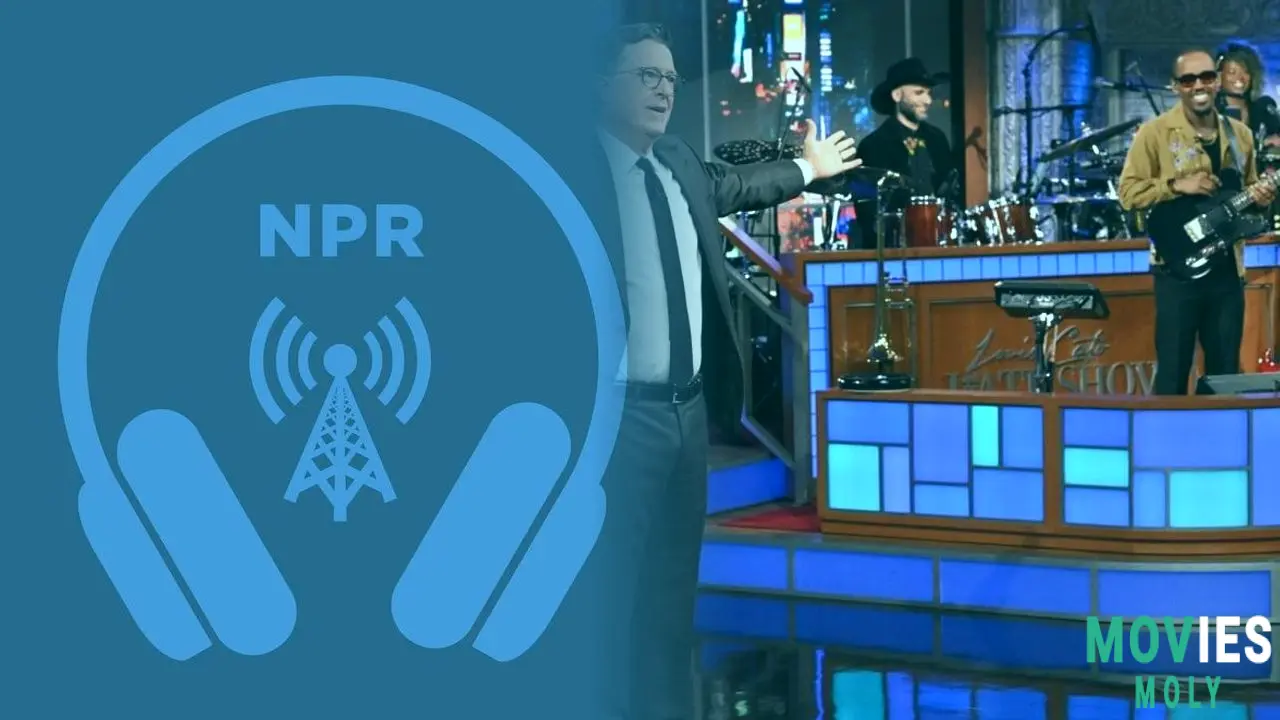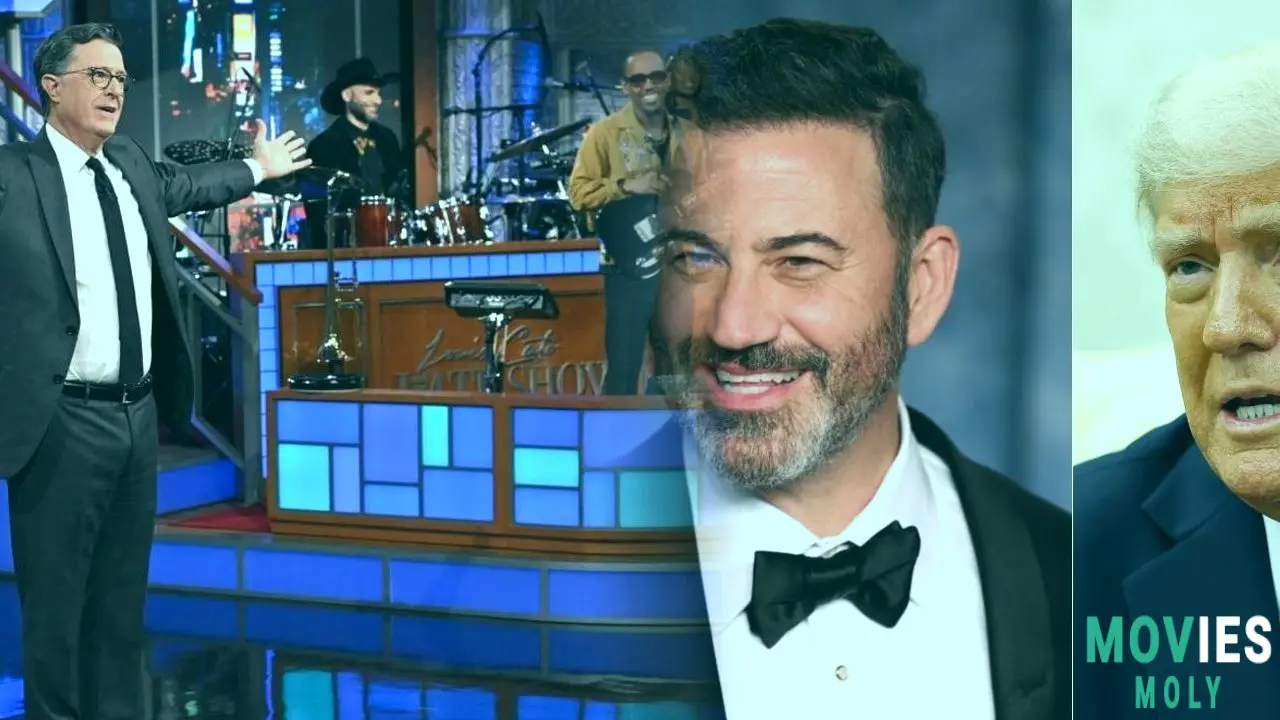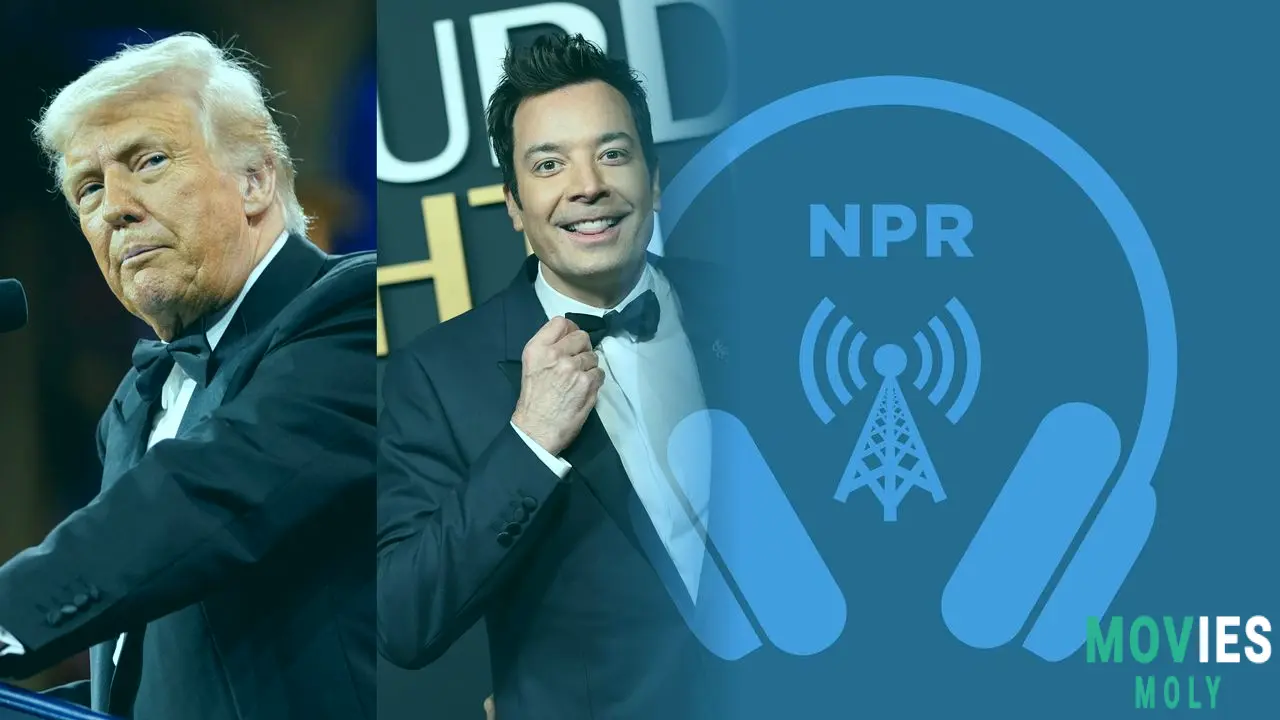It was shocking news for the TV world: CBS will cancel The Late Show with Stephen Colbert in May 2026. This choice has led to conversations regarding the state of late-night TV's finances and how political events affect programming. The news came just a few days after Stephen Colbert slammed Paramount, CBS's parent company, for making a big deal out of settling with Donald Trump.
A controversial cancellation of Stephen Colbert's Late ShowCBS said the cancellation was a "purely financial decision" because late-night shows are having a hard time right now. But the timing was strange, especially given The Late Show has always been one of the most popular shows in its time slot. Reports say that the show was losing about $40 million a year, even though a lot of people watched it. The show cost about $100 million a year to make.
Colbert's Monologue: Breaking Down the Deal
Days before the cancellation was revealed, Stephen Colbert talked about Paramount's $16 million deal with Donald Trump over a lawsuit against a 60 Minutes interview with Kamala Harris. Colbert dubbed the payment a "big fat bribe," which makes sense because it has to do with Paramount Global's $8 billion merger with Skydance Media, which needs Federal Communications Commission (FCC) clearance.
Stephen Colbert joked that "cancel culture had gone too far," but he added he could finally say what he really thought of Trump.
Colbert also said that CBS "lost the benefit of the doubt" when the deal was made. Senator Elizabeth Warren openly asked if the show was canceled for political reasons.
Donald Trump's War on Late-Night Talk Shows

Donald Trump was happy to hear that The Late Show was canceled. He went on Truth Social to talk about Colbert and other late-night hosts.
The Truth Social War Zone
Trump said he "absolutely loved that Colbert got fired," saying that Colbert's "talent was even less than his ratings." He then moved on to other hosts, saying that Jimmy Kimmel was "next to go" and Jimmy Fallon would be next.
Donald Trump: These guys had NO TALENT and were paid millions of dollars to ruin what used to be GREAT TV in every case.
This public declaration shows that Trump is still angry with late-night comedians who have made fun of him a lot.
Jimmy Kimmel's Angry Response to Trump

Jimmy Kimmel, who Trump often criticizes, instantly replied to what the previous president said.
Kimmel's jab at Epstein: A new chapter in the fight
Kimmel put a screenshot of Trump's Truth Social statement on Instagram and added a snarky comment.
Jimmy Kimmel: I hear that you're next. Or maybe it's simply another great secret.
This comment was concerning a Wall Street Journal article that said Trump wrote a letter to Jeffrey Epstein, which Trump has denied authoring. Kimmel and Trump have been fighting for almost ten years, and Kimmel routinely uses his show to attack Trump's actions and ideas.
The Bigger Effect on Late-Night TV
The end of The Late Show has caused a stir in the late-night community, with other hosts showing support and concern.
Fallon and Stewart Speak Up
Jimmy Fallon talked about Colbert's time on The Tonight Show, but Jon Stewart was more open in his criticism.
Jon Stewart: Was this only about money, or was it the easiest way to get your $8 billion [US] deal done?
Stewart, whose show is owned by Paramount Global, was worried that the cancellation was related to the merger and the feeling that critical voices were being "muzzled." He also made fun of late-night TV by remarking, "We're all basically running a Blockbuster kiosk inside of a Tower Records."
What will happen next in the world of late-night TV?
The genre has a hard road ahead. People are moving away from traditional linear networks and toward streaming services and on-demand programming. The amount of money that late-night shows make from ads has gone down a lot. For example, the combined linear TV ad revenue for Colbert, Fallon, and Kimmel went from $404 million in 2018 to $200 million in 2024.
The Role of Paramount and Financial Pressures
CBS and Paramount Global say that the decision to terminate The Late Show was only about money. But the fact that the cancellation happened right after the Trump settlement has led to rumors about political reasons.
The Late Show's Financials: Ratings vs. Profitability
The Late Show was losing tens of millions of dollars a year, even though it was the most popular late-night show. These losses are partly due to the hefty production costs, which include paying the host and hiring about 200 personnel. Late-night network advertising has dropped sharply, and digital revenue from sites like YouTube doesn't make up for all of these losses.
The FCC needs to approve the proposed $8 billion merger between Paramount Global and Skydance Media. Some people think that the deal with Trump and the cancelation of Colbert's show could be ways to make this merger happen.
Late-night fights and censorship in the past
The way things are now is similar to how things used to be when political pressure changed media programming. In the past, governments have put pressure on comedians who made fun of their policies. For example, CBS fired the Smothers Brothers in the 1960s.
Looking at how political pressure affects media programming
The deal with Trump and the termination of The Late Show make many worry about how willing media organizations are to give in to outside pressure. David Bianculli, a TV reviewer for NPR, said that Paramount is "muzzling its best voices and diluting its own broadcast future" by not supporting The Late Show.
Bianculli, David (NPR TV critic): Paramount is silencing its brightest voices and weakening its own broadcast future by not valuing, protecting, and growing "The Late Show."
The Changing World of Late Night: Not Just on TVThe problems that traditional late-night TV shows are having are a sign of a bigger change in how people watch TV. More and more people, especially younger ones, are using streaming services and on-demand clips.
How Late-Night Clips Rule Digital Audience Engagement
As fewer people watch linear TV, late-night shows are finding fresh life on digital channels. Monologue clips and other parts often get millions of views on YouTube and other social media sites, which is much more than the number of people who see them on TV. But this internet reach doesn't always mean a lot of money, because "YouTube is digital dimes versus network dollars."
Late-night TV's format, which hasn't evolved much since the 1950s, is having a hard time adjusting to a time when on-demand access is so important. To get younger viewers, several networks are looking toward digital-first models or shows that focus on viral content.
What Comes Next for Stephen Colbert: Ideas and What Could HappenThe Late Show's loss of Stephen Colbert leaves a big hole on late-night TV. But it looks like he has a bright career in show business.
People in the business say that Colbert will probably get big development projects. Like David Letterman's Netflix show, moving to a streaming service could provide him more creative freedom and let him reach a different audience. There in Conan O, podcasting is another option that would let Col " of Colbert's monologues and interviewsa without interruptions from the network.
A new traditional late-night show on another broadcast network is unlikely to happen right now because of the state of the economy, but Colbert's established viewership and comedic talent mean he will probably stay a well-known voice in the media.






